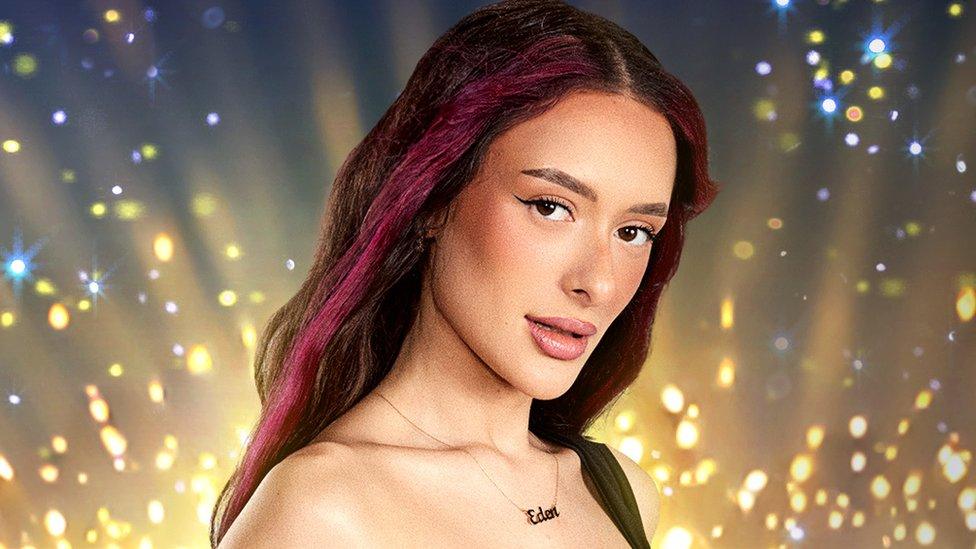Bambie Thug: The witch casting a Eurovision spell
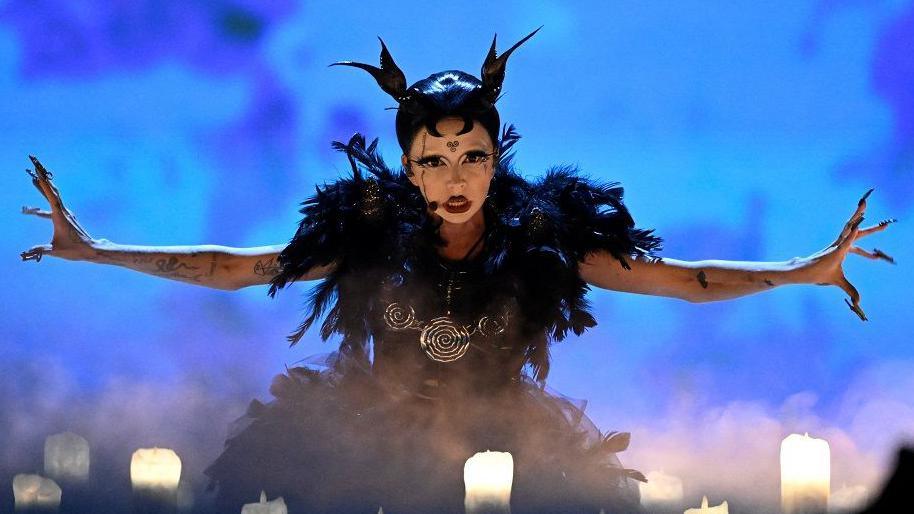
Bambie Thug has become the first Irish act to qualify for a Eurovision Grand Final since 2018
- Published
Earlier this year the Irish public were asked to do one thing: Send the witch.
Enter Bambie Thug, a self-described queer, ‘ouija popstar’, who uses the non-binary personal pronouns they and them, with their genre-defying Eurovision entry Doomsday Blue.
In a country once considered among the most conservative in Europe, what does this year’s song choice say about modern Ireland?
“Progression,” Bambie suggested to BBC News NI ahead of qualifing for the Eurovision Grand Final.
“It shows that the people are a lot more forward-thinking.”
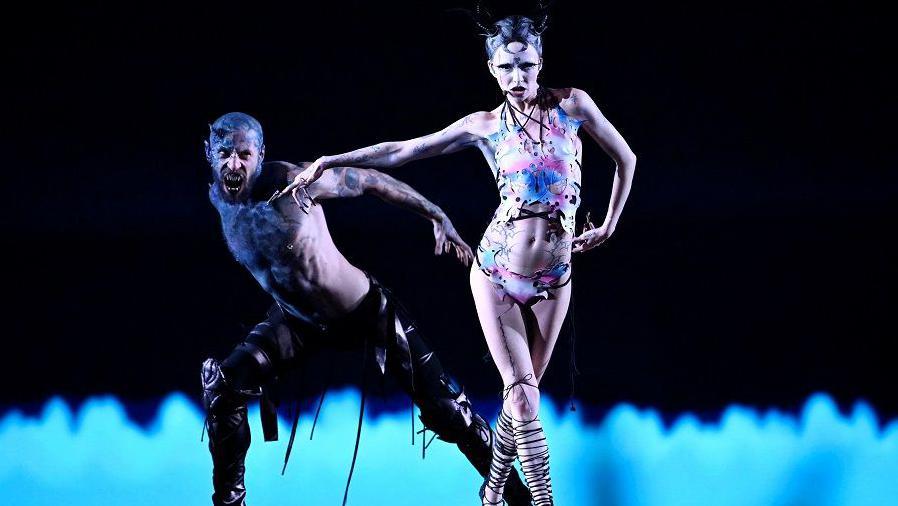
They will now perform alongside 25 other acts on Saturday evening
On Tuesday evening, Bambie Thug became the first Irish entry to qualify for a Eurovision Grand Final in six years.
They will now perform alongside 25 other countries on Saturday evening.
The Cork singer was among 10 acts to qualify from the first semi-final at the Malmö Arena.
Taoiseach (Irish Prime Minister) Simon Harris congratulated Bambie on qualifing for the final.
"Bambie will become the first Irish act in the Eurovision finals since 2018. It is time to bring the Eurovision back to Ireland and Bambie is the act to do it!" he wrote on X, formerly Twitter., external
What is the Eurovision boycott?
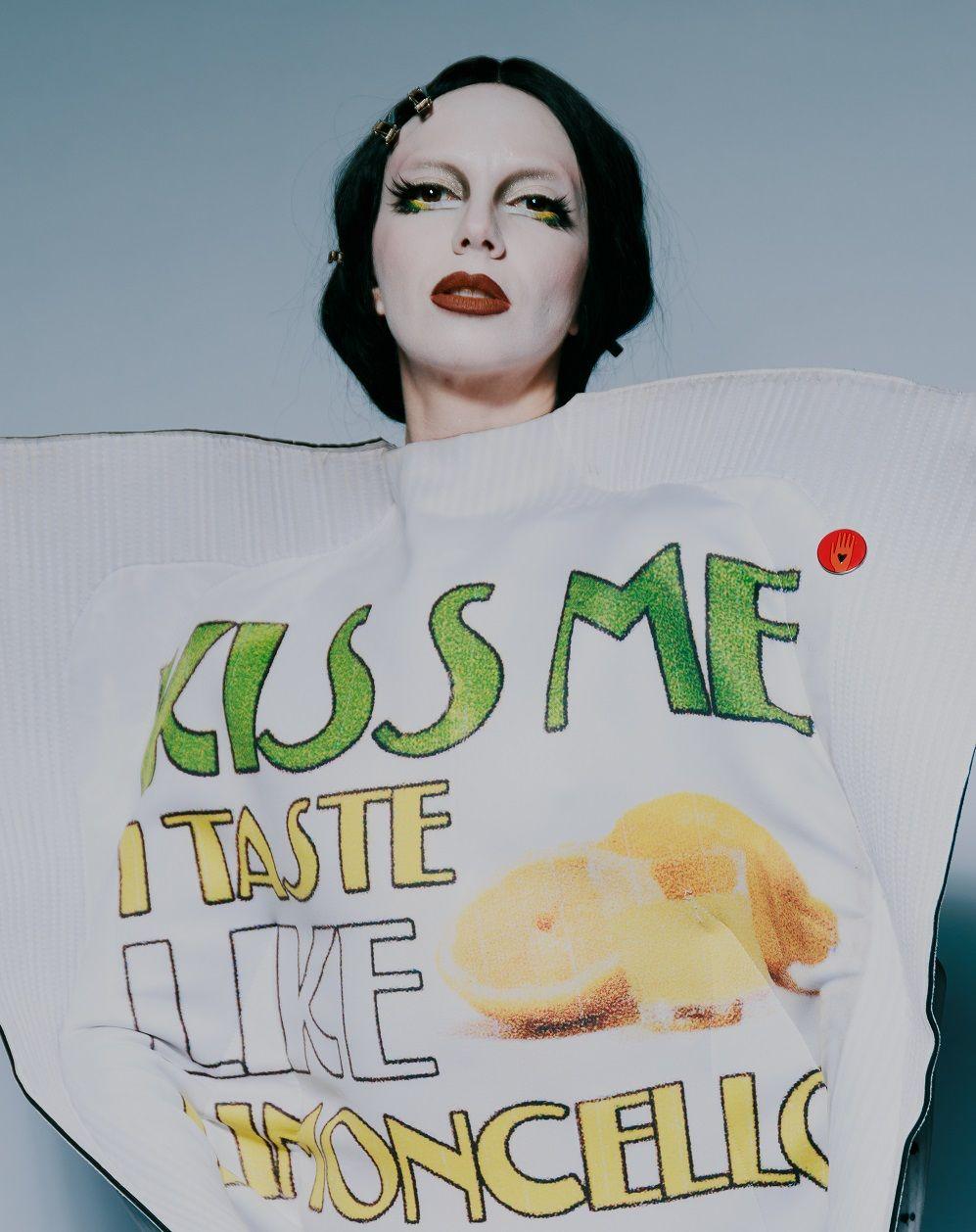
There have been calls for Bambie Thug to boycott Eurovision
Ahead of the competition thousands of people called on the musician to boycott the contest in protest against Israel’s participation.
"I'm pro-Palestine, this is not changing. It's a heavy year to be in it," Bambie said ahead of Tuesday night's semi-final in Sweden.
"I don't agree with the decision made by the EBU [European Broadcasting Union]... but I'm not the EBU, I can't change their minds," they said.
Musicians and organisations from a number of countries have called for Israel to be suspended over the war in Gaza, with many pointing out that Russia has been disqualified since its invasion of Ukraine in 2022.
Eurovision organisers have resisted calls for Israel's exclusion, saying the situations in Ukraine and Gaza are different.
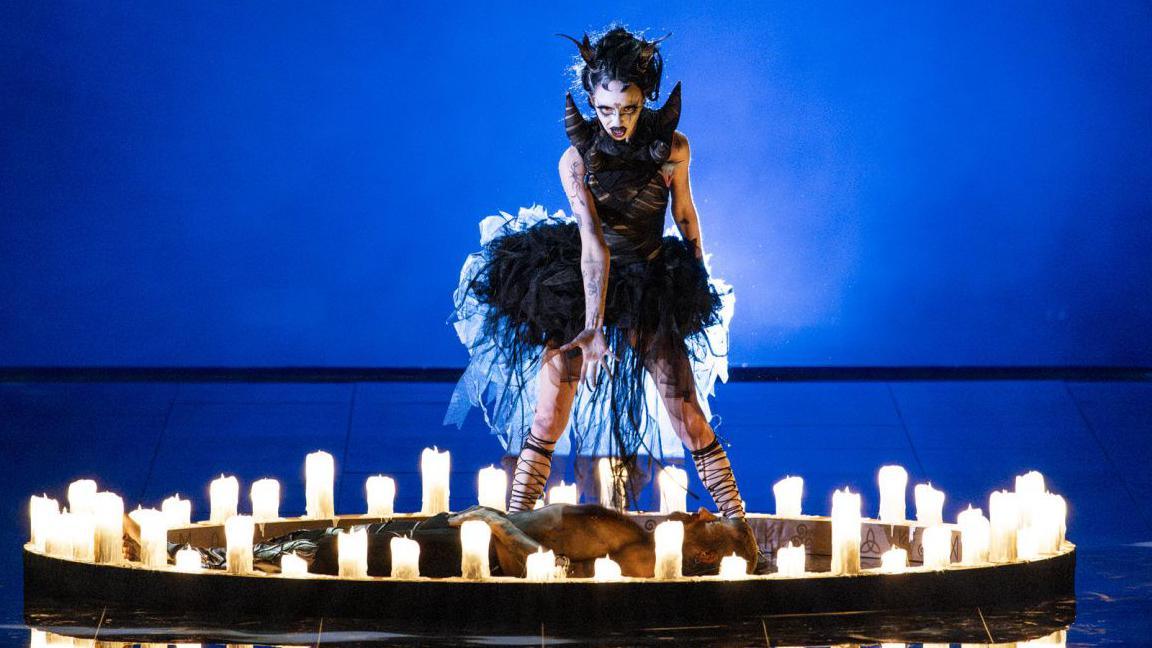
Bambie and other artists have called for a ceasefire in Gaza
More than 400 Irish artists have signed an open letter urging Bambie to boycott the competition.
But Bambie has maintained that pro-Palestinian representation at Eurovision is important.
The UK's representative, Olly Alexander, also rejected calls to pull out of the contest, instead co-signing a statement with Bambie and seven other entrants, calling for an "immediate and lasting ceasefire and the return of all [Israeli] hostages".
Allow Instagram content?
This article contains content provided by Instagram. We ask for your permission before anything is loaded, as they may be using cookies and other technologies. You may want to read Meta’s Instagram cookie policy, external and privacy policy, external before accepting. To view this content choose ‘accept and continue’.
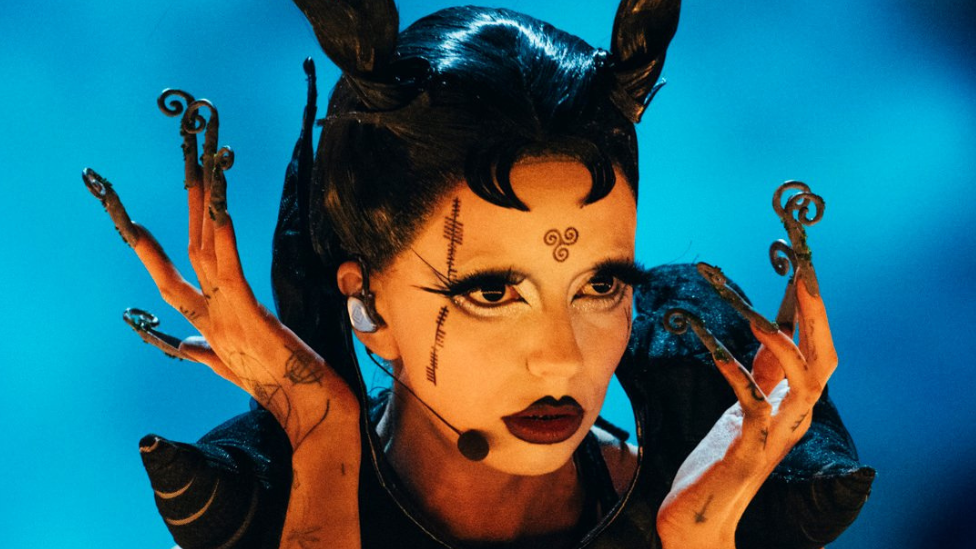
Bambie had written "ceasefire" and "freedom for Palestine" on their face during dress rehersals
During dress rehearsals there were some political gestures on display but Bambie told reporters on Tuesday evening that they were "ordered" to remove these ahead of the semi-final performance.
Their costume had originally included an ancient Celtic writing known as Ogham - which they said had spelt "ceasefire" and "freedom for Palestine".
Ogham is an ancient Irish alphabet, represented by a series of marks on stones and it is the earliest written source of the Irish language, dating back to the 4th Century AD.
"It was very important for me because I am pro-justice and pro-peace, unfortunately I had to change those messages today to 'crown the witch' only, [an] order from the EBU," Bambie said.
Who is Bambie Thug?
Born in County Cork, the 31-year-old singer songwriter may be hoping they have the genetic recipe for success - their father is Swedish and their mother is Irish.
Ireland and Sweden hold the joint record for the most Eurovision wins, with seven each.
Now, Bambie is bringing their unique sound - described as ouija-pop - to the final in Malmö.
So what is ouija-pop?
"It can be anything, all of my music has got a bit of a cult tinge," they said.
"I was kind of sick of: 'What's your genre?'
"My genre is: I'm a songwriter, I'm a lyricist, I'm a performer."
Perhaps there's no better example than Doomsday Blue, a genre-clash of epic proportions that's proved popular with the public.
"I wanted to showcase all the facets of myself like spoken word poetry, singing, jazzy crooning, metal, screaming, I squeeze it all in," Bambie said.
"I made it with some of my very close friends who are also incredible musicians, all I can remember [from] making it is it was really fun, I'm proud of it."
Allow YouTube content?
This article contains content provided by Google YouTube. We ask for your permission before anything is loaded, as they may be using cookies and other technologies. You may want to read Google’s cookie policy, external and privacy policy, external before accepting. To view this content choose ‘accept and continue’.
The song "navigates a lot of different pathways", according to Bambie.
"It has a toxic relationship thing about it. Being a queer person in relationships, in the industry and in the world, and being excluded from things, or having your potential overlooked," they said.
"It talks about mental health up and downs, you know, it's the human experience. In three minutes."
It hasn't gone down well with everyone - Hermann Kelly, the president of the Irish Freedom Party, called Bambie the "biggest turkey since Dustin, external" and criticised the entry as "woke nonsense", external.
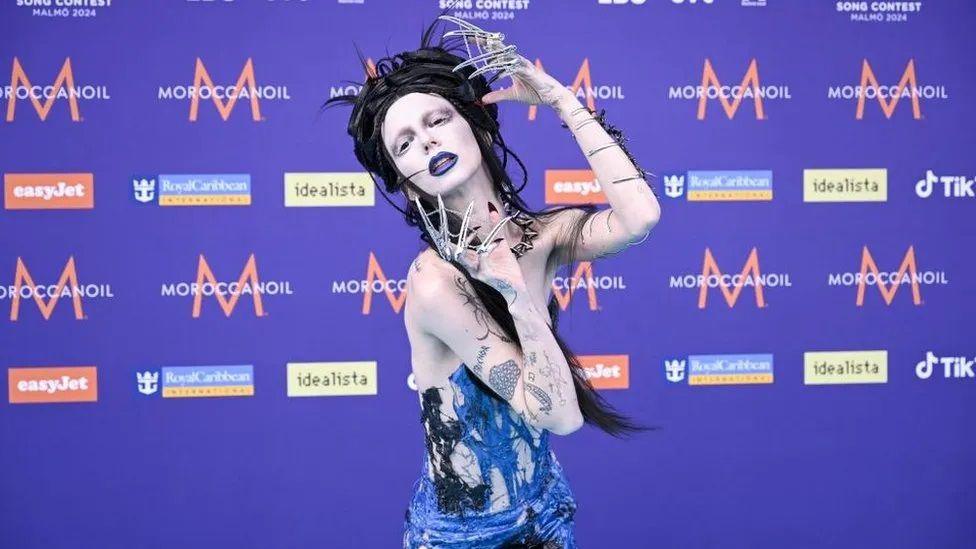
Bambie showed off their style at the event's official opening in Malmö on Monday
Bambie later addressed their online haters, urging those with negative comments to “remember I am a human too”.
"People who have hate scream so loud," they told BBC News NI.
"Imagine if they're talking to me like that, how they're talking to themselves internally, or how they're talking to someone in their life.
"I pride myself in leading with love as much as I possibly can."
Eurovision 2024 - follow our live updates
- Published11 May 2024
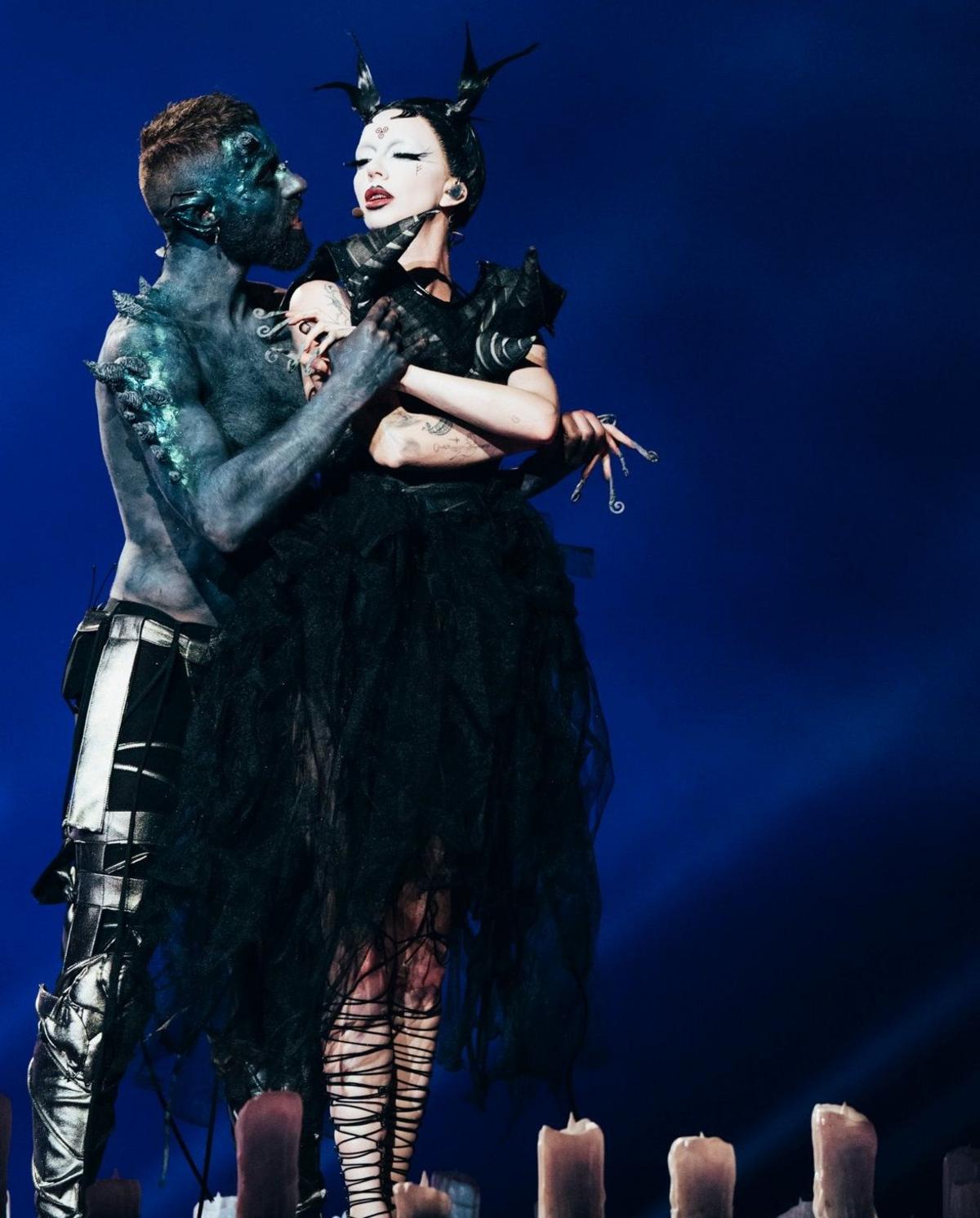
Doomsday Blue navigates "the human experience", says Bambie
Can Ireland make a Eurovision comeback?
Despite having such a stellar Eurovision past, Ireland's track record in recent years has been poor - until Tuesday it hadn't qualified for the Eurovision final since 2018 (Ryan O'Shaughnessy's Together, for those wondering).
However, Johnny Logan, who has won the contest for Ireland three times, certainly thinks Bambie Thug could be the one to return Ireland to Eurovision success.
“It’s probably the best and most original entry that Ireland has had for as long as I can remember," he told the Sunday World newspaper, adding he'd be surprised if the song didn't perform well.
Bookmakers are seemingly in on the act as well with Bambie ranked within the top 10, and rising, on many odds-checkers.
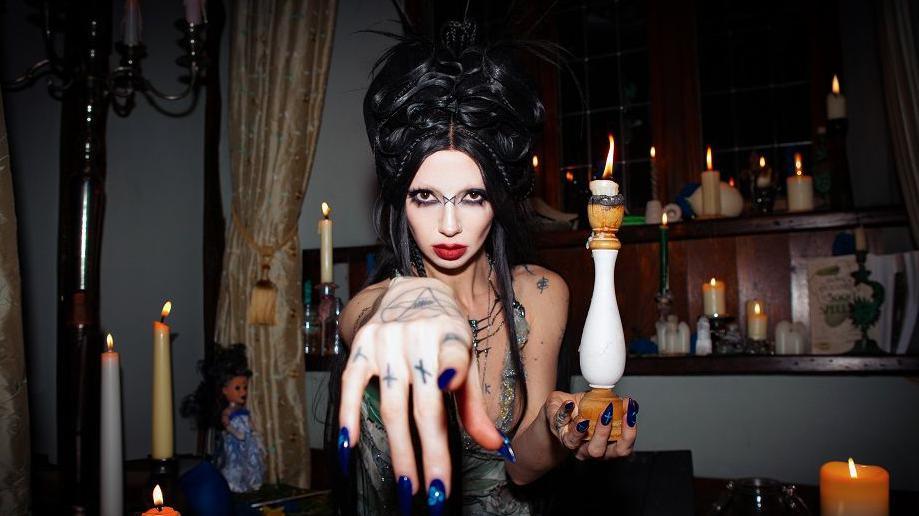
Bambie says there is pressure heading into the competition
With the exception of some Abba-solute breakthroughs, Eurovision has often been regarded as a one-hit-wonder wasteland full of gimmicks and glitz.
But in recent years the competition has bucked the trend by helping to launch lasting careers for the likes of Måneskin and Sam Ryder.
"I think people are taking it more seriously again, because they're realising that it's a 160 million viewers, the platform is incredible," Bambie said ahead of the semi-final.
"Yes, there is pressure," they admit. "But at the same time I have pressure on myself to do the best that I can do.
"I think we're gonna give everyone an amazing show. Really, I don't think anyone's doing anything like our staging.
"No other song sounds like it this year."
So with this being the year Ireland got over its semi-final slump, you wouldn't bet against Bambie Thug, especially not when they sing the opening lyrics to Doomsday Blue on Saturday: Avada Kedavra, they speak to destroy.
Watch: Eurovision 2024

Rylan and Scott Mills are live from Malmö for Eurovision Grand Final, live on BBC One and BBC iPlayer from 20:00 BST on Saturday.
Related topics
- Published8 May 2024
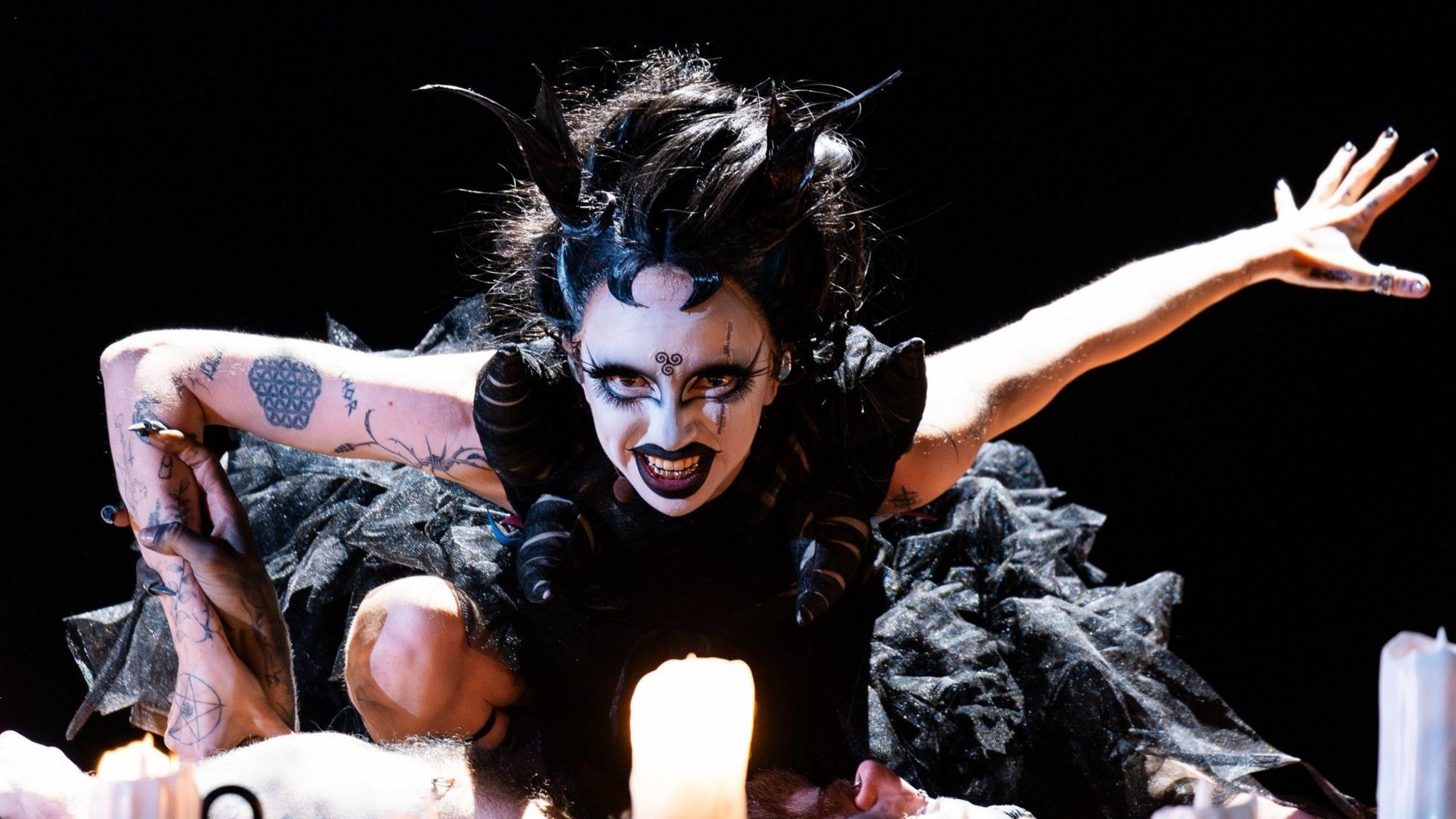
- Published5 May 2024
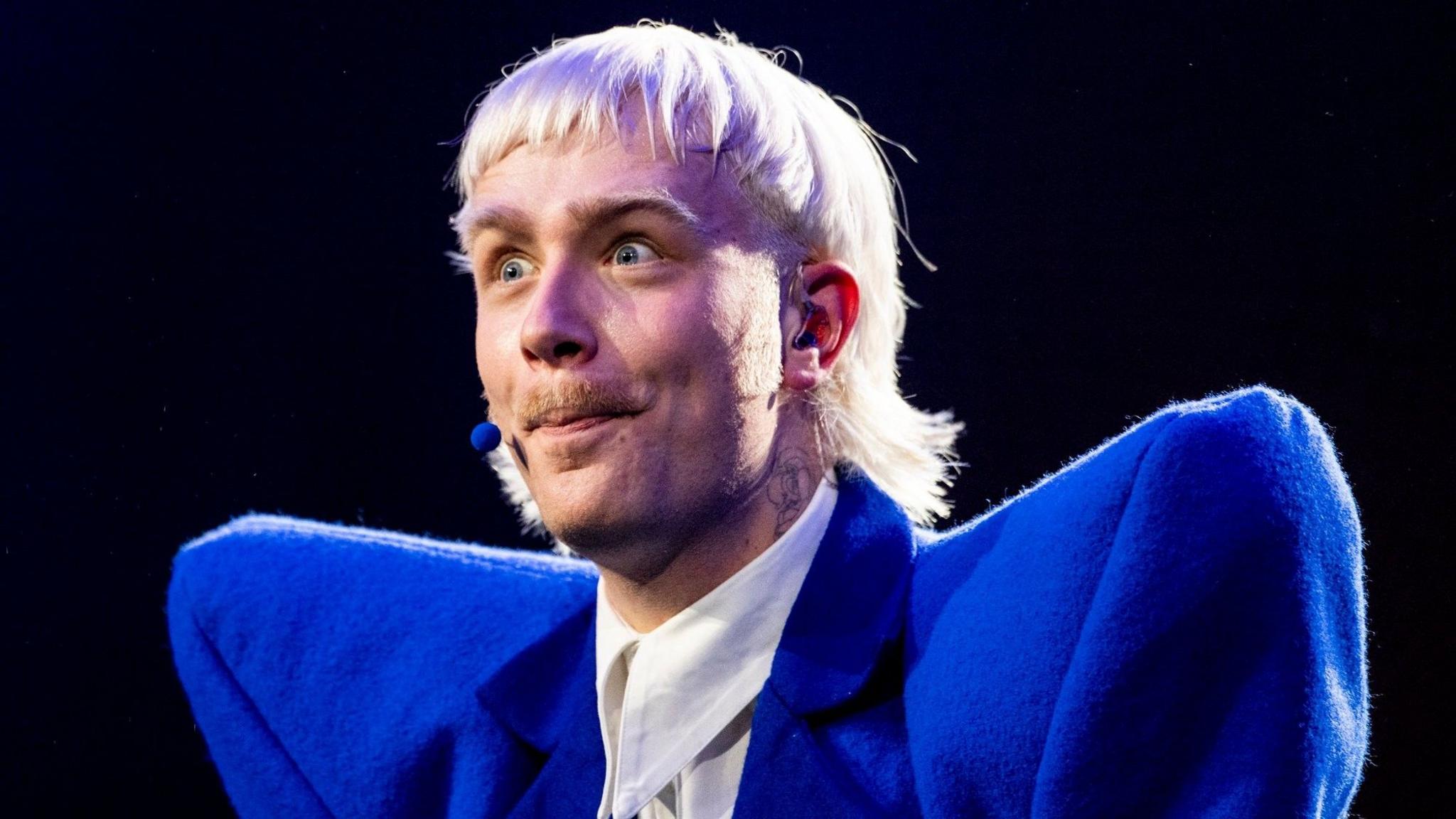
- Published10 May 2024
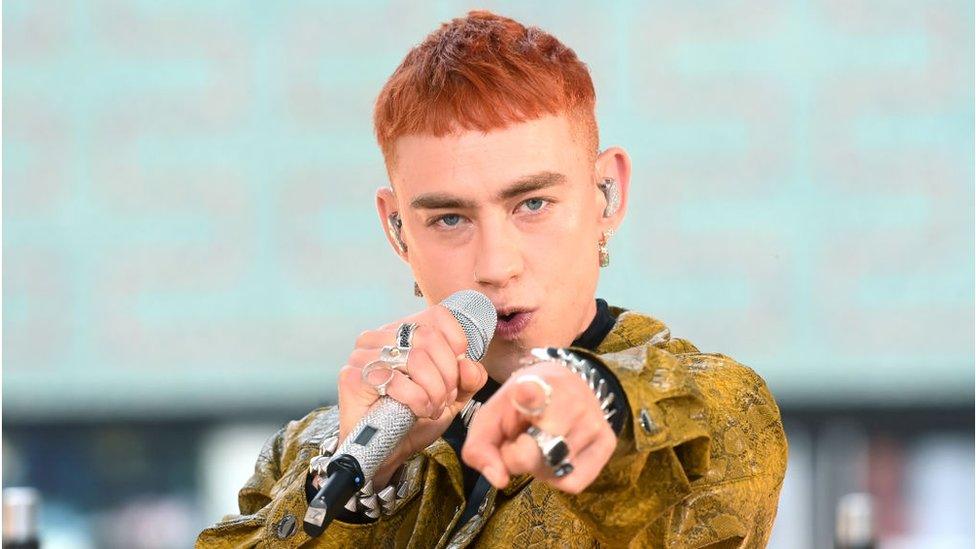
- Published27 January 2024

- Published29 March 2024

- Published7 March 2024
